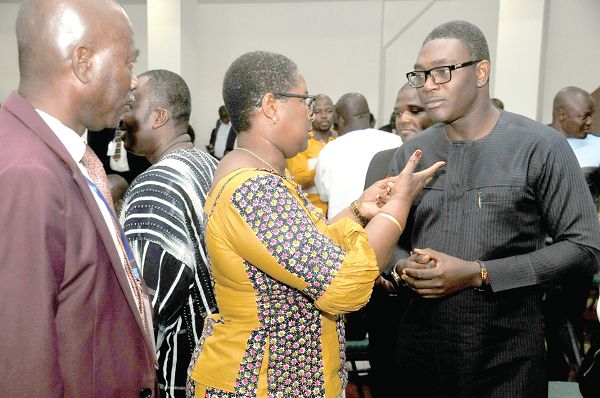
Public utilities propose tariff increases
Public utility service providers have proposed an increment in the 2018-2020 tariff review to enable them to enhance access and quality of their services. The service providers are the Ghana Grid Company Limited (GRIDCo), Electricity Company of Ghana (ECG), Northern Electricity Distribution Company (NEDCo), Ghana Water Company Limited (GWCL) and the Enclave Power Company (EPC).
The proposal came despite assurances given by President Nana Addo Dankwa Akufo-Addo to reduce electricity tariffs.
President Akufo-Addo had already announced an average of 14 per cent reduction in electricity tariff for non-residential users across the country subject to approval by the Public Utilities Regulatory Commission (PURC).
Presenting their proposals at the joint consultative meeting for the 2018 major tariff review in Accra, the service providers cited high cost of production, unrecovered investments and intended investments to enhance service delivery and access as the justification for their proposals.
Present at the meeting were representatives of GRIDCo, ECG, NEDCo, GWCL, EPC and the Ghana Chamber of Telecommunications (GCT).
Others were from the Ghana Trades Union Congress (TUC), Association of Ghana Industries (AGI), Ghana Chamber of Commerce, Energy Commission and the Consumer Protection Agency.
Members of the public were given the opportunity to make inputs through a number of new media platforms.
PURC
In her welcome address, the Executive Secretary of the PURC, Mrs Mami Dufie Ofori, said the commission reviewed utility tariffs every two years in accordance with the PURC Act, 1997 (Act 538).
She explained that the periodic review was to make tariffs relevant and expressed gratitude to the stakeholders for the insightful proposals so far.
“We are still in the process of receiving proposals and the platform is to allow the public to contribute to the dialogue to enrich our decision,” she said.
The Chairman of the technical committee of the PURC, Mr Ishmael Egyekumhene, said the commission would announce its decision in a couple of weeks.
Giving the focus for the review, he said it was to reinforce the commission’s goal of using tariff as a tool for development.
Mr Egyekumhene said it also sought to promote quality utility services and the commission was determined to ensure value for money, without compromising service quality taking into consideration vulnerable and marginalised stakeholders.
“We agree that trying to strike such a balance is a difficult task but we are committed to the challenge and we believe we can only achieve our goal through stakeholder support and inputs. This is why we engage stakeholders to enrich our decisions,” he said.
He said the commission would review the tariffs considering the cost of generation to transmission and distribution.
“If we are only to base the analysis on exchange rate and inflation, there is every justification for the tariffs to go up,” he said.
AAF
In February 2011, the PURC announced the implementation of its revised Automatic Tariff Adjustment Formula (AAF), which sought to track and incorporate movements in key variables, which had an impact on tariffs but which lay outside the control of the utility companies.
Following the introduction of the AAF, the review of utility tariffs would be done quarterly by the PURC.
Under the AAF, electricity and water tariffs will be reviewed taking into consideration factors such as the world market price of crude oil and the cedi-US dollar exchange rate.
TUC
Making a contribution on behalf of the TUC, its director in charge of research and policy, Mr Kwabena Nyarko, asked the PURC to ensure that the cost of production and operations which the service providers were demanding to pass on to consumers through the increases, were prudent.
“You must take into consideration the government’s announcement of an across the board reduction and the poverty situation in the country in the final decision,” he told the utility service providers.
